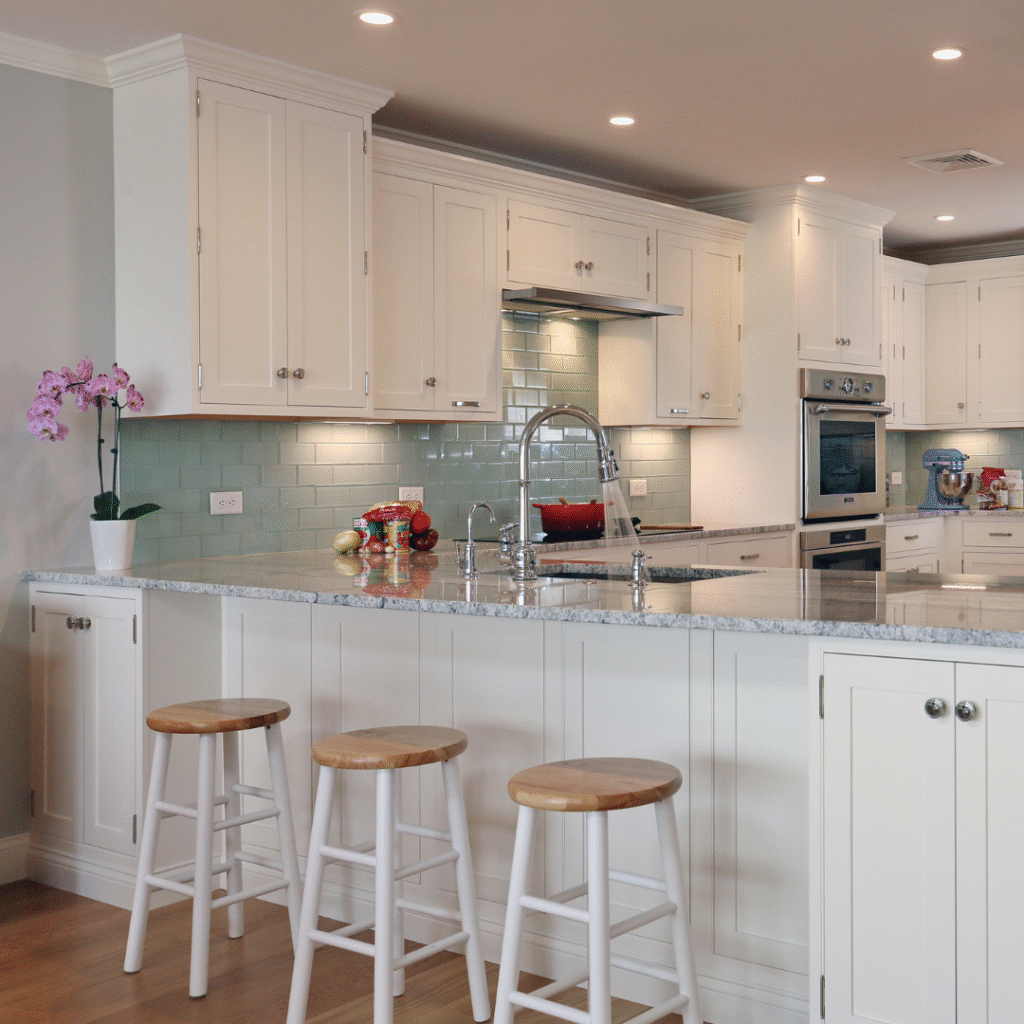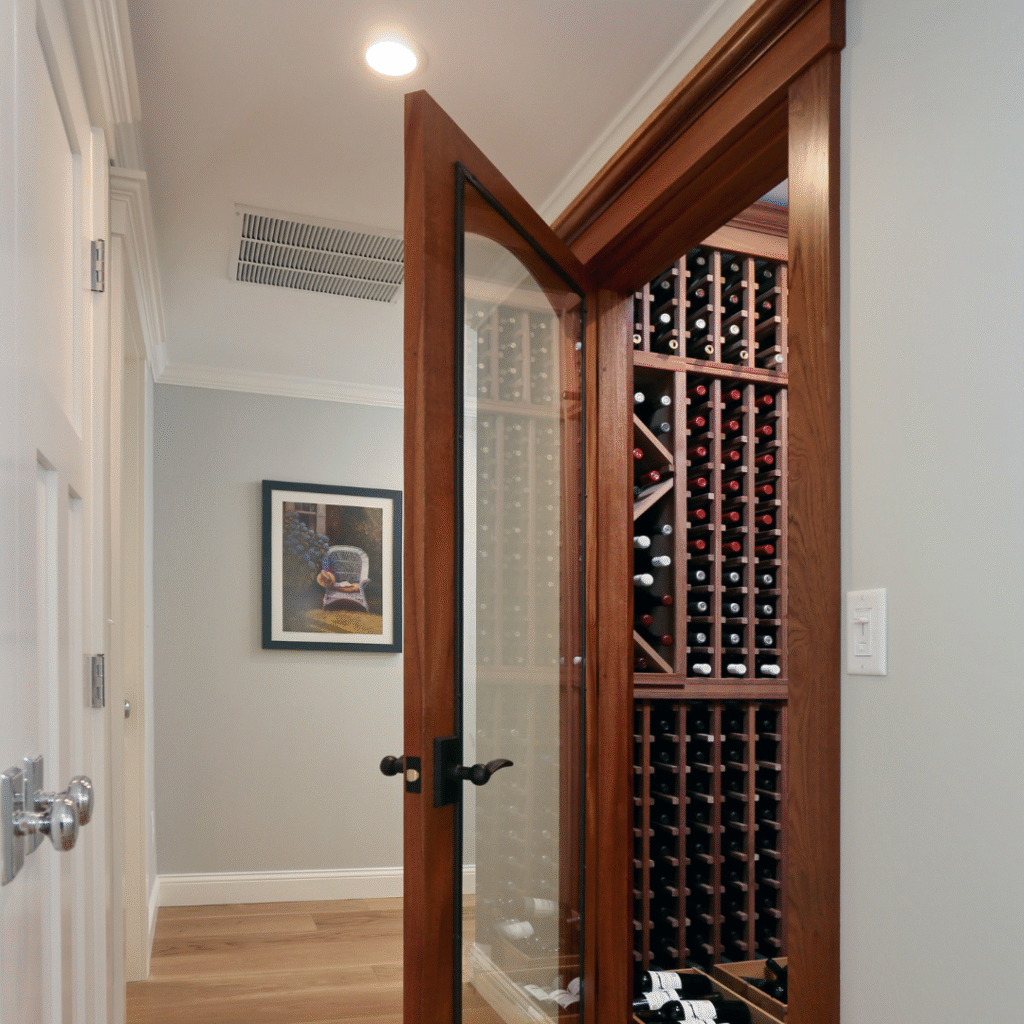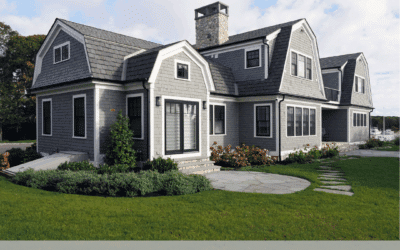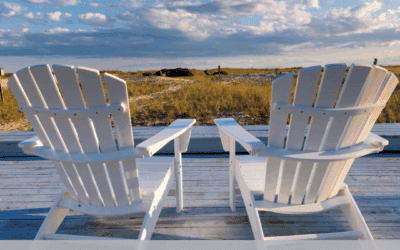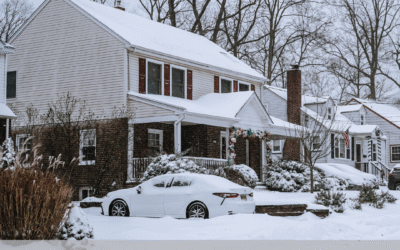What You Need to Know About Designing a Custom Home Bars
Thinking about adding a bar or wine cellar to your home? Whether you’re entertaining guests or creating a relaxing retreat for yourself, a custom bar or wine cellar can add elegance, functionality, and value to your home.
Let’s look at some of the most important design and construction tips for creating a space that’s as beautiful as it is practical.
How do I design a home bar that’s stylish and functional?
Begin with your goal. Whether it’s entertaining, relaxing, or showcasing a liquor collection, design around how you’ll use the space. Include storage, prep areas, refrigeration, and seating for a complete home bar experience.
What makes a wine cellar effective, even in a smaller home?
Climate control is key. You don’t need a basement. With proper insulation, a cooling unit, and well-planned wine racks, even a closet can become a high-end wine storage solution.
What materials are best for home bars and wine cellars?
Yes. Many homeowners convert under-stair nooks, pantries, or hallways into beautiful, compact wine cellars using modern climate systems and insulated design.
What should I know about building codes in Cape Cod for these spaces?
In Cape Cod, projects involving electrical work, plumbing, or structural changes typically require permits. Historic districts have stricter material and visibility rules. Local expertise is essential.
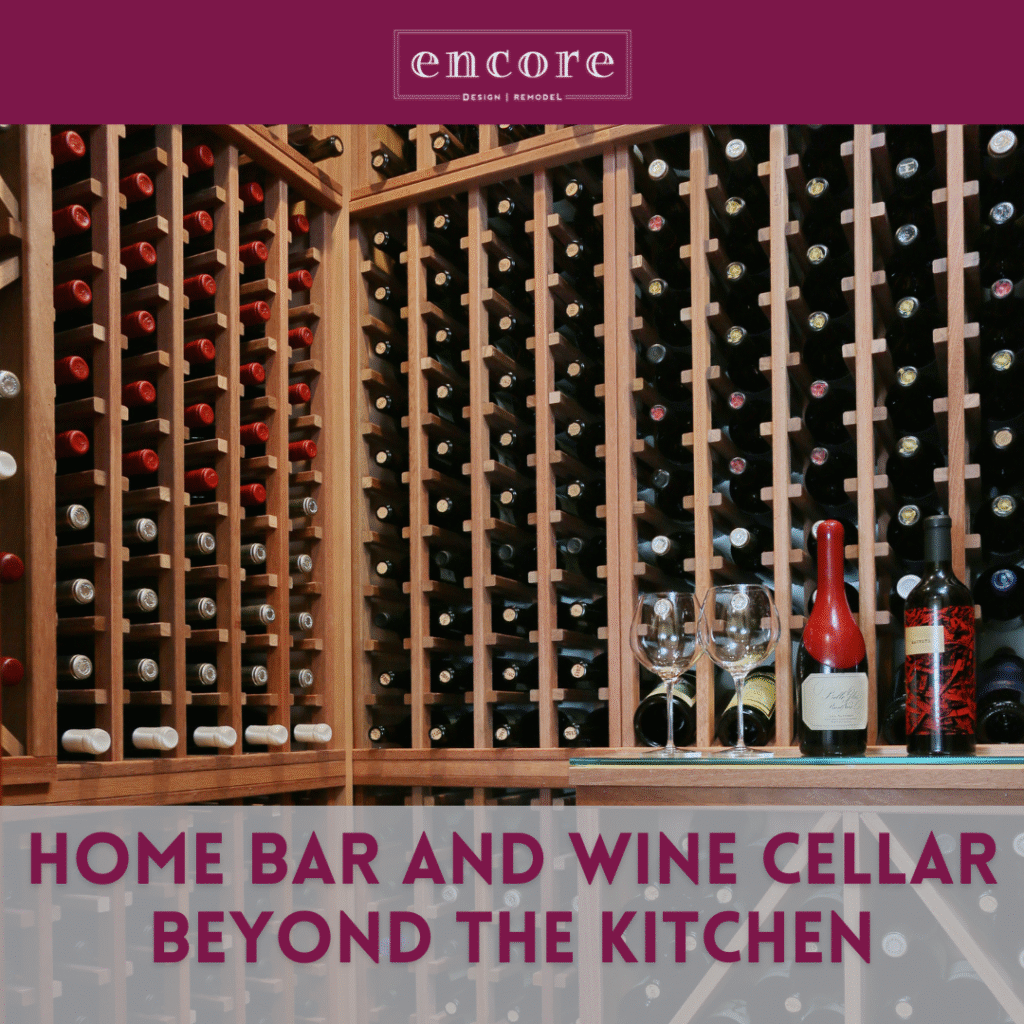
If you’re dreaming of a sophisticated home feature that goes beyond the traditional kitchen, consider a custom home bar or wine cellar. These spaces offer more than storage. They bring lifestyle, luxury, and value to your home.
In this guide, we’ll walk through how to design and build a custom home bar or wine cellar, especially for Cape Cod homeowners looking to upgrade with purpose.
Home Bars That Blend Style and Function
A home bar should do more than store bottles. It should be a destination in your home. Whether you’re entertaining guests or pouring a quiet nightcap, it needs to be functional and beautiful.
Here’s what to keep in mind:
-
Bar location: Kitchen extension, basement remodel, or dedicated entertainment area
-
Essentials: Sink, under-counter fridge, shelving, lockable cabinets, and bar seating
-
Lighting: Combine task and accent lighting for visual appeal and usability
- Design theme: Match your home’s existing style or create a standout feature
💡Pro Tip: Add outlets inside cabinets to power blenders, wine coolers, or mixers discreetly.
Wine Cellars for Every Size Home
Wine cellars are not just for estates. Even modest Cape Cod homes can enjoy beautifully designed wine storage with the right setup. Modern systems make it easy to store wine professionally in smaller spaces.
Key wine cellar components include:
- Cooling units: Choose from ducted, ductless, or self-contained options
- Insulation and vapor barriers: Keep temperature and humidity stable
- Racking systems: Custom wood, metal, or modular racks to match your collection
- Durable flooring: Choose tile or sealed wood to manage moisture
Glass walls, backlighting, and custom finishes can transform a wine cellar into a design centerpiece.
Choosing Materials That Last
Home bars and wine cellars need to withstand daily use, moisture, and temperature changes. Choosing the right materials ensures your investment looks great for years.
Top materials we recommend:
-
Cabinetry: Use sealed hardwood or marine-grade plywood
-
Countertops: Quartz or granite offer durability and elegance
-
Hardware: Choose stainless steel, brushed nickel, or brass for longevity
-
Lighting: LED strip lighting or recessed spotlights enhance both visibility and style
Focus on materials that provide function, resist wear, and add beauty to the space.
Understand Permits and Codes in Cape Cod
In Cape Cod, remodeling projects often fall under local, state, or federal building regulations. This is especially true for homes near conservation areas or those in historic districts.
Permits may be required for:
-
Plumbing installation (sinks or ice makers)
-
Electrical upgrades (lighting, outlets, cooling systems)
-
Structural changes (removing walls or altering layouts)
-
Zoning and conservation approvals (especially for historic properties)
Encore Construction works with Cape Cod homeowners to ensure every project meets code and is approved quickly to avoid delays.
FAQs
1. Can I add a home bar or wine cellar to an older Cape Cod home?
Yes. With proper design and local knowledge, you can add modern features while preserving architectural integrity.
2. Do I need ventilation in a wine cellar?
Proper ventilation and climate control protect wine from mold, spoilage, and humidity damage.
3. What type of wine cooling system is best?
It depends on the size of your space. Self-contained units are perfect for small closets. Larger rooms benefit from ducted cooling systems.
4. Does a wine cellar increase home value?
Yes. Wine storage adds luxury appeal and is highly attractive to buyers who value entertaining and design.
5. Can I convert garage or outdoor space into a bar or wine cellar?
Yes, but it requires additional insulation, waterproofing, and professional-grade cooling or heating solutions.
Key Takeaways
- Design your bar or wine cellar around your lifestyle and available space
- Invest in materials that offer moisture resistance, durability, and timeless aesthetics
- Use modern cooling systems to build wine cellars in non-traditional spaces
- Cape Cod regulations can be complex, so work with a builder who understands the local process
- These features enhance daily living and add long-term property value
Ready to Design Your Custom Bar or Wine Cellar?
Whether you’re upgrading your home for entertaining or creating a dedicated wine storage space, Encore Construction helps Cape Cod homeowners bring their vision to life.
Schedule a consultation today and let’s build something extraordinary.

